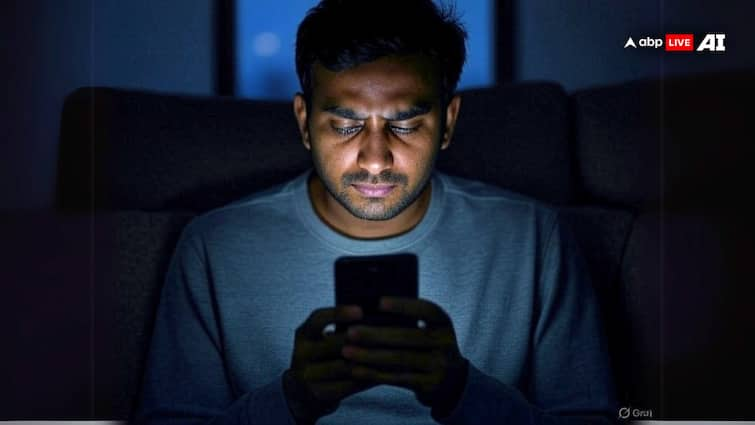India and Pakistan Operation Sindoor News: For the beginning of this week, Pakistan was just one name for the seven -year Hazel. Now with every knock at the door, she gets skeptical and is upset thinking about an impending danger. Annu Matthew is finding it difficult to convince his daughter Hazel that she is not in any direct danger in Trivandrum, Kerala.
What facts to believe and not on what?
Matthew said, “All this started when he had an awareness session in his school and then he heard some things from his friends in class.” Now she wants me to be careful before opening the door. She says that Pakistan will attack us and everyone will die. ”Hazel is not alone. Mahendra Awasthi, 36 years in Delhi hundreds of miles away, said that he could not sleep. The girl is troubled by the conversation around her, then the youth are resorting to social media, who do not understand what facts should be believed and not on whom.
On Saturday evening, people have been scared despite the consent to stop military confrontation between Pakistan and India. US President Donald Trump has said that it has been agreed to stop military conflict between the two countries. This feeling of relief soon turned into a new anxiety, when reports of explosions in many border areas of Pakistan and violating the agreement with ‘Blackout’.
Stress has a bad effect on mental health
It began on the night of May six-seven, when India ran ‘Operation Sindoor’ against terrorist bases in Pakistan and Pakistan occupied Kashmir (PoK) under the retaliation of the attack in Pahalgam. In the next days, the two countries opened fire in major cities bordering the border. They all have a long -term effect on mental health.
Mental health experts say that the increasing military tension between the two countries, floods of information, and inability to distinguish in false and true news can have a significant impact on individuals’ psychological health.
According to Clinical Psychologist Shweta Sharma, a continuous discussion of a possible war can lead to “adverse trauma” response among people, even among those who stay away from struggle areas. Sharma said to ‘PTI-language’, “Constant media coverage, social media and emotional subject matter can affect the brain stress regulation system. War related fear often arises from uncertainty-how far it will go, who will be affected and what will be its long-term results? ”
This is a very worrying situation for people
Awasthi, who was immersed in the vortex of news and misinformation on social media and news channels, said that he is constantly full of fear, to the extent that he can sometimes hear his heartbeat by beating his heartbeat rapidly. He said, “I do not want to scroll on social media, but I think I will miss some important news. If Delhi became the next target, what should I do to keep my family safe, will we wake up tomorrow? ”
For people living in safe areas, seeing the suffering of citizens or soldiers can create a sense of guilt and helplessness. Sharma said, “Youth minds are affected very quickly. The words of war can create fear, strengthen conservatism and disrupt their sense of security. ”
It is necessary to be aware at such a time
It is important to be aware at such a time, but it is also necessary to select reliable sources for information and take a break from constant coverage. Sharma said that when it comes to children, it is appropriate to explain them about the situation according to age. He said, “Give them the assurance of security and encourage them for open dialogue instead of paying attention to the information being broadcast online.”
Matthew has made a plan to assure his daughter. She takes Hazel to the balcony and pointing to the sky and asks her if she is watching any explosion or firing, which she is afraid. Matthew said, “When she sees that no such thing is happening here, it becomes calm.” The trauma can take different forms.
Aniket Singh (name changed), a resident of Jaipur, who was almost unwell due to the apprehension of the adjacent war, started preparing for the emergency after the attack in Pahalgam on 22 April. 26 people were killed in the Pahalgam terror attack, after which India started ‘Operation Sindoor’. Aniket Singh submitted three months of ration, fully charged power bank, flashlight, adequate cash and necessary medicines. Nevertheless, he is feeling “very worried” and “helpless”.
Singh said, “I think something big is going to happen and I am not ready to take care of myself and my family at all.” I think what I am doing is probably not enough. I can’t really stop myself from feeling so. ”
Incidents like ‘Blackout’ worry
It is one thing to be worried about the unknown situation due to the danger of war, but being prepared for any unpleasant result can also cause concern. Senior physician Maitri Chand said that focusing on siren, ‘blackout’ practice and storing essential items can make people feel ready and can also cause anxiety.
Chand said, “This is a rope on which it is difficult to walk, where we have to make our balance ourselves.” It is difficult to remain calm and restrained, especially when most people around you are in a frenzied environment inspired by anxiety and fear.
In such circumstances, people should try to remain calm with “positive thoughts” that they will come out of it and be able to take care of their loved ones when the time comes. Chand also advised people to do yoga, meditation to remain calm.
Also read –
Operation Sindoor: This is new India, ‘Operation Sindoor’ is the historic step against terror?
Check out Below Health Tools-
Calculate your body mass index (BMI)
Calculate the age through age calculator

